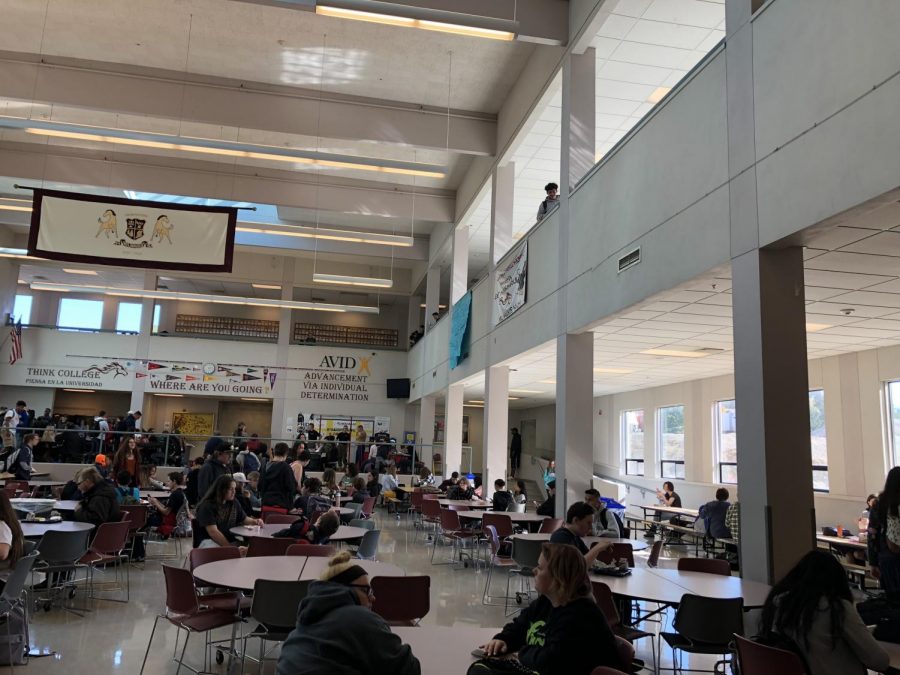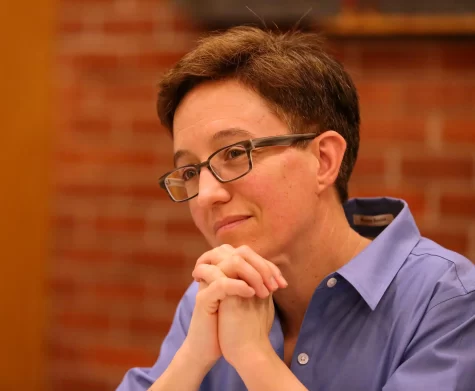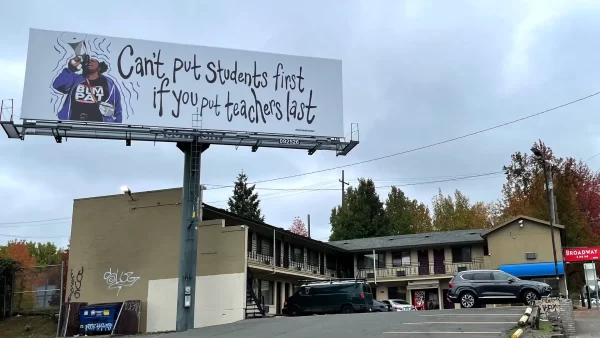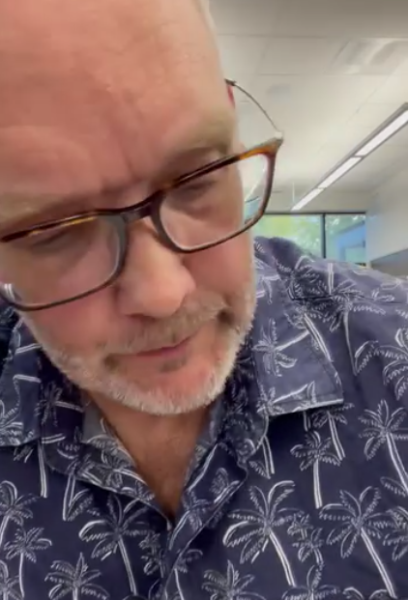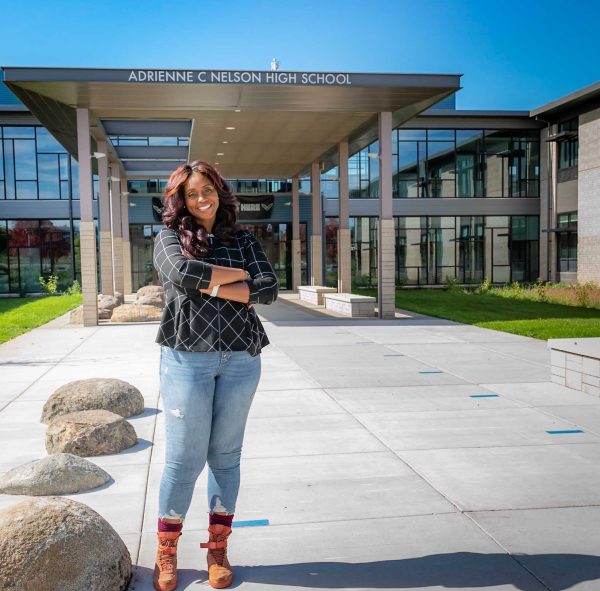Paying The Price For Public Education
“We care a lot. We care about our brothers and sisters, we care about students, we care about the future of Portland. We too, care about ballooning class sizes with another 110 teachers slated to be cut this year,” writes Henry Li, a student at Wilson High School in Portland, Oregon. Li wrote a letter to the teachers of Portland Public Schools and the Board of Education regarding the $10 million dollars about to be cut from the district, which would include reductions to clubs, teachers, increased class sizes, and less equipment for classrooms. Li and his friends were concerned that “…the stuff that makes our school a school,” would disappear because of budget cuts. Li, along with the residents of Portland and surrounding districts, are worried about public education and success in school because of what some believe are inequitable taxation between taxpayers and large corporations. The citizens argue that large, billion-dollar corporations, such as Nike whose headquarters is located in Oregon, should be contributing more money through taxes to financially support public schools.
In December 2012,Nike entered into an agreement that ensured the global sportswear manufacturer is taxed only on the portion of its sales inside Oregon for 30 years. The agreement was part of a deal orchestrated by then Governor John Kitzhaber. The tax break benefits Nike but puts Oregonians and public schools at a financial disadvantage. Most Oregon educators believe that this treatment is unjust and that corporations have just as much responsibility towards the upkeep of the community as every other citizen. The fact that Nike has bargained their way out of taxes does not sit well with some in the public.
An important face of Nike is Julia Brim-Edwards. Brim-Edwards is the Global Senior Director of Public Affairs at the company. She has worked at Nike for thirteen years, but before that, she served on the Portland Public School Board of Education for five years. Brim-Edwards is currently serving on The Board of Trustees for Oregon State University and Pacific University. As involved as Brim-Edwards is with the education system and schools, reporters, journalists, educators and some individual taxpayers are questioning why she is not doing more to help by urging her company to pay more in taxes to fund Oregon public schools. Brim-Edwards has stated she does care about students and their education as shown through her involvement at Benson High School in Portland. The district plans to rebuild Benson, the Career and Technical Education Center for Portland Public Schools to make it larger and sturdier. Brim-Edwards tweeted, on December 18th of 2018, “Benson Masterplan VOTE tonight. I’m a YES!” She expressed enthusiasm for the rebuild, showing her Twitter followers that she wants to try to make the education system in the state better. However, she also represents one of the largest corporations in Oregon and Nike’s reduced participation in the tax base does not have many people convinced that her main goal is funding for education systems in Oregon. The Oregonian explains that Brim-Edwards contacted the governor in June of 2018, and asked Kate Brown to take the “…so-called corporate transparency initiative off the ballot.” By taking it off the ballot, it would keep the public’s eyes off of Nike’s tax documents and state filings. (The Compass made numerous attempts to contact Mrs. Brim-Edwards about these issues but she never returned our calls or emails for comment.)
In the midterm elections in November 2018, a local levy was in front of voters in the North Clackamas School District. Nineteen other districts in the state of Oregon also asked voters to approve levies, including the Portland Public School District. It was shared that the schools needed more money, and for that to happen, property taxes would be raised. The NCSD levy caused some controversy among residents, as citizens battled with moral and financial dilemmas. If the levy passed, the rise in property taxes could cause financial issues for families with low incomes. For every $1,000 worth of property, home owners are being charged an extra $1.63. The extra money aims to improve the education system while providing a full school year for the students beginning with the school year in 2019. This would also allow many teachers to remain in their positions, allow for more teaching options and would provide better equipment for classrooms necessary for the development of students. If voters had voted no, thirty-four school days would have been cut from the year, as well as 170 teaching jobs. Many parents voiced support as it means that their children will get a full year of studies under teachers who would not have to be concerned about layoffs. However, there are many people who know that there will be suffering to come with the higher taxes. Some people are arguing that if large corporations would pitch in by paying more in taxes to help the school districts, local property taxes would not have to be raised. Nik
LeeAnn Larson, President of Oregon School Board Association (OSBA) states that they are, “…dedicated to improving student success and educational equity through advocacy, leadership, and service to Oregon public school boards.” Larson says, “I truly believe that we have to invest in our students in this state and that will solve a lot of our long-term issues and our economic issues. I believe we have to get to the students when they are young. Help them be successful, and help them be trained and on track to become active citizens in the state of Oregon that will benefit in their communities and our economy.”
Lori Sattenspiel, Director of the Legislative Services Department in the OSBA, says that “Funding is our number one priority.” As a board member, Sattenspiel values education for students. “Once you have an educated student, they can get a job and pay taxes which helps fund support services that we all use.” Sattenspiel also clarified what happens when we don’t have enough funding for our schools, “The class sizes get bigger because we cannot pay teachers enough and bring in enough teachers. Without proper funding, everything takes a beating. Classrooms, don’t get upgrades in books, technology can’t be updated, etc. It’s just a problem all the way around.” Sattenspiel has a vision for the future, explaining that she is looking out for the next generation and the success of the country.
Alex Pulaski is the Communication Specialist for the OSBA. Pulaski says, “The young people of today who are going to school, represent the future of this state.” On big corporation tax breaks, Pulaski commented, “Oregon has one of the lowest corporate tax rates of states in the country and so there are a lot of people here in Oregon that think it’s worth looking at whether businesses should pay more taxes in this state,” Large corporations such as Nike could increase the amount they pay in taxes to help allieviate some of the pressures now on individual taxpayers. The money would go to the students, better equipment for the schools, and a larger pay for the employees. More employees would be hired if there is more money for more positions. The OSBA wants “to leave this world a better place” by creating a more sophisticated education system. This will be possible with the help of large corporation financial contributions.
Included in the fight for more funding is Sandra Henderson. Henderson started working with the NCSD in March of 1998. She is now the North Clackamas Administrative Assistant to the Superintendent Matt Utterback, and has been since May 2014. Henderson was very clear and transparent with her opinions regarding Oregon’s school funding. In response to how important education and school funding is to her, she says for the “…wellbeing of our community, ensuring their students get the education they deserve, and schools are well- funded.” Henderson also discussed that she is opposed to big corporations in Oregon being given tax breaks. Henderson states, “In my personal opinion, I’ve been very opposed to that.” She knows it is not a school board opinion and was very careful in her response. Lastly, Henderson was asked her opinion on how these tax breaks are affecting classrooms, students, and teachers. In response, she shares, “There’s been a shortage of funds for schools for many years starting back from measure five. A lot of it had to do with changing the way property taxes are charged.” She goes on to explain, “The businesses received large tax breaks back then that have never been restored. So our schools have suffered for many years with lack of funding and having to try to get as much as we can from the legislature, whenever possible. But it doesn’t seem like it ever comes through.”
John Larson, President of Oregon Education Association (OEA), which represents over 40,000 Oregon educators, focuses on recruiting exceptional members for public education. Larson explains, “The goal of educators is to make sure that every student, regardless of how they come to us, leave our school systems with the best education possible, and without the proper funding, it’s almost impossible to do that.” Larson understands the importance of proper school funding and the job entailed to every educator. When it comes to big corporations, John Larson recognizes that, “The corporations in Oregon pay some of the lowest taxes in the nation.” Furthermore, Larson explains, “Nike agrees that they pay more in taxes in other states than they do in Oregon. As does almost every corporation, not even the ones that are based here, but the ones that operate in Oregon.” Larson knows that corporations in general do not pay many taxes in Oregon, and it is not just one or two. When it comes to education and other public funding, Larson backs Nike by saying, “Nike realizes that they pay everywhere else, [but] where their children go to school, where they use the roads, the public services, [and] the parks, they want Oregon to be the best state it can be, and so they agree that corporations have go to pull their fair share.” But because corporations have not completely pulled their fair share, Larson believes “The government has got to step in.”
On the other hand, arguments can be made that corporations, such as Nike, do not need to help fund public schools in Oregon, because the general public has been able to fund the schools quite well for a great deal of time. “Portland Public Schools spent $12,400 per student during 2015-16, putting Oregon’s largest district among the top 20 biggest spenders among U.S. school districts”, according to a recent article in the Oregonian newspaper. The school districts in Oregon get a good amount of money, mostly from citizens paying their regular taxes. Supporters believe that the schools do not need any more funding. “Portland’s No. 18 ranking was driven in part by relatively high spending on pupil support services, which includes counseling, nurses, school psychologists and speech pathologists, and the high cost of employee benefits.” However, funding is not all that is seems. Oregonlive.com states, “In practice, however, Portland’s children are unfairly denied the opportunity to rise up and out of cycles of poverty. We’ve sold their collective future short: Educational opportunity takes a back seat to corporate interests. Local politicians fail to fund schools properly. Our children are paying the price.” Because large corporations with large sums of money are not helping the citizens pay funds, over the years, it has become harder to keep up with funds. The price on homes has risen severely within the last ten years, as well as many other prices for taxes. People are finding it harder and harder to keep up the funding for public schools. Without the help of large corporations, public schools can be in danger of losing jobs, employees, and students as well as days, equipment, and pay.
Overall, the tax breaks that large corporations are receiving is unjust to many eyes in Oregon. People fear that politics have become more important to the billion dollar companies than the well-being of communities. The tax breaks are causing anger within the general public, as the people are forced to pay even more taxes just to keep schools, public safety, and human services afloat. The struggle is largely based on the refusal of paying additional taxes by Nike and others. The Oregon Legislature is expected to review the issue, again, during this legislative session. You can expect to see Julia Brim-Edwards in Salem after she and others came up with a political action committee to talk about funding and taxes for public education in Oregon.

